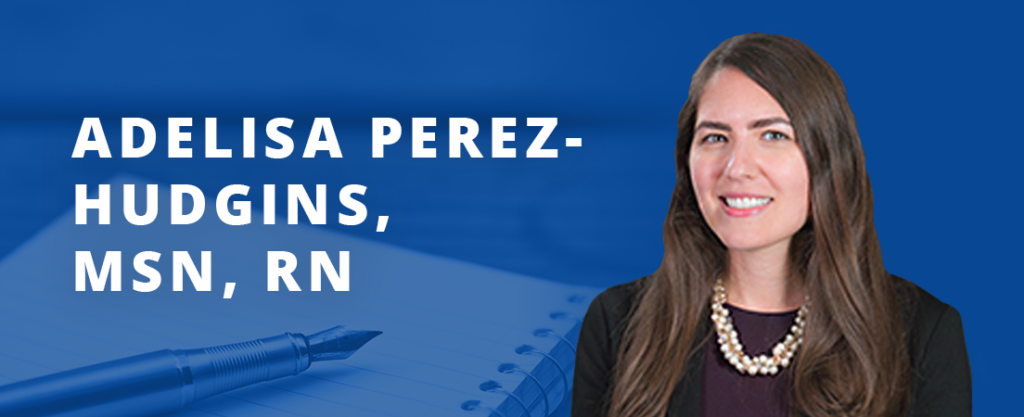At the Quality Institute, we have a wealth of experts on our staff, including our Director of Quality, Adelisa Perez-Hudgins, MSN, RN. A Registered Nurse, Adelisa brings over a decade of clinical experience to our quality improvement, transparency, and community wellness initiatives, including The Leapfrog Group and Conversation of Your Life. Today, I’m turning my blog over to Adelisa to share information about our New Jersey Perinatal Care During COVID-19 Workgroup, and her personal connection with this critical project.
In April of last year, I joined the workgroup bringing experts together to create guidance for providers and facilities on perinatal care during the COVID-19 pandemic. These were the early days of the pandemic and they were frightening for all of us, and I knew the uncertainty would weigh especially heavy on someone who was pregnant. Pregnancy during a pandemic was uncharted territory.
The Quality Institute led the New Jersey Perinatal Care During COVID-19 Workgroup at the request of the State of New Jersey and several foundations, and we brought together more than 40 experts to provide guidance and recommendations. We were all committed to supporting high quality, safe, and equitable perinatal care in New Jersey.
Then, just as the recommendations were completed, my policy work took on a deeply personal meaning. I found out I was pregnant with my first child. I became even more grateful for the experts who carefully and objectively weighed the need for social distancing during the pandemic with the needs of the pregnant person. The far-reaching recommendations give practical guidance to providers on topics such as Personal Protection Equipment, COVID-19 testing, and labor and delivery protocols.
Keeping people safe remains the priority. I’m thankful the experts also took into account a pregnant individual’s emotional wellbeing. The workgroup, for instance, recommended that a support person be allowed to accompany the pregnant person into the labor and delivery facility, and, if the individual has a doula, the doula can be there as well. The clarity on how this support can be provided safely — and why it’s so necessary — gave me a great sense of relief. My baby should arrive in about two weeks and I’m thankful my husband, Austin, can be with me during my delivery and recovery.
Early on, as we collected data, studies and information, I was struck by the lack of best practices easily available to providers guiding their patient’s pregnancy journey during the pandemic. In New Jersey, there are about 100,000 live births annually; childbirth is the most common diagnosis for a hospital stay. We created best practices to keep everyone safe during in-person visits and also to promote equity. Not everyone can log on to a computer for a telehealth visit, for instance. Our workgroup also reached out to national experts and put all these best practices in one document. I continue working to update the recommendations regularly for the State as new data and studies emerge.
Even though I am a nurse, I still appreciated the guidance that was shared with providers. If one of my providers suggested that I should not breastfeed my baby, say, or that I could not have someone with me during delivery, I could point to the recommendations. That didn’t happen, but I was thankful to know about the guidance given to providers.
The next phase of our work now is to create materials for consumers and patients so they know about the changes and protocols in place during the pandemic and are confident and prepared for what’s ahead.
The workgroup is just one element of the Quality Institute’s efforts to advance perinatal safety, equity, and quality. We advocated for the State Health Benefits Program and the state’s Medicaid program to stop paying for early elective deliveries that are not medically necessary. That policy took effect last month, though even before the policy took effect we saw a dramatic decline in these unnecessary early deliveries. I’m also proud of the Quality Institute’s support of The Leapfrog Group’s maternity measures, where, again, we’ve seen real change. We are not where we need to be, but we’ve made significant progress as rates of episiotomies and Cesarean sections in the state decline.
We support First Lady Tammy Murphy and Nurture NJ, the statewide campaign committed to reducing infant and maternal mortality. We’re thankful that our Quality Institute members and the state are committed to making New Jersey the safest place to have a baby. That’s a goal I take very personally.


